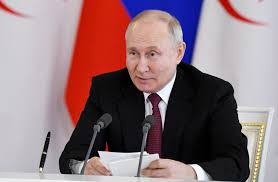Share!
When the news was first flashed Wednesday evening that Wagner mercenary group leader Yevgeny Prigozhin had been killed in a plane crash, I don’t think many people around the world believe it was an accident. Prigozhin was the man who, exactly two months ago, launched a rebellion against Russian President Vladimir Putin and even led a rebel march on Moscow, until Belarusian President Alexander Lukashenko negotiated a truce, Prigozhin called off the march and Putin “forgave” him.
It reminded me of an event that took place at the Potsdam Conference of Allied Powers leaders in 1945, as I read in a book years ago. Germany had already accepted the Allies’ demand for “unconditional surrender,” as had Italy.
Japan was yet to, but after the US dropped atomic bombs on Hiroshima and Nagasaki, the Japanese Government privately offered to surrender on one condition, that “the prerogatives of the Emperor [Hirohito] will not be jeopardized” by the surrender.
The American Joint Chiefs of Staff told President Harry Truman that if he did not accept the single condition, Japan will fight on, the US will have to invade the Japanese homeland, that General Douglas MacArthur estimated that he needed 5 million troops to invade Japan, that it will take one year to pacify it, that he will lose one million troops and will have to kill up to 10 million Japanese soldiers and civilians.
Truman mulled over it all, and he consulted Soviet leader Joseph Stalin, who was with him at Potsdam.
Stalin saw no dilemma there. He advised Truman to accept Japan’s single conditionality and, once it surrenders and his troops occupy the country, “you go ahead and give them the works!”
Apparently, that was what Vladimir Putin did with the Yevgeny Prigozhin “dilemma.”
Mallam Mahmud Jega writes from Abuja
No related posts.
